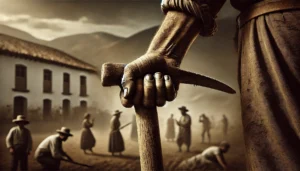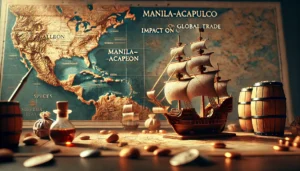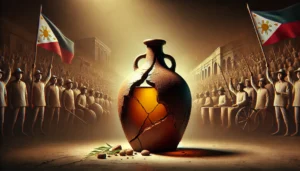Philippines Stands Firm: BRP Sierra Madre to Remain as Permanent Outpost in Disputed Ayungin Shoal
In a decisive move that underscores the Philippines’ commitment to protecting its sovereign rights in the West Philippine Sea, the government has reaffirmed its stance on maintaining the BRP Sierra Madre as a permanent military outpost in the contested Ayungin Shoal. This declaration comes in direct response to China’s recent claim that the Philippines had […]
Read More
The Polo y Servicio: Forced Labor and Social Unrest in Philippine History
The Polo y Servicio was a labor system implemented during the Spanish colonial period in the Philippines. This system, which lasted from the 16th to the 19th century, required Filipino men aged 16 to 60 to render forced labor for various public works projects. The term “polo” referred to the personal service, while “servicio” denoted […]
Read More
The Rise of the New People’s Army (NPA): Communist Insurgency in the Philippines
The New People’s Army (NPA), the armed wing of the Communist Party of the Philippines (CPP), emerged during a tumultuous period in Philippine history. The late 1960s saw widespread social unrest, economic inequality, and political repression under the administration of Ferdinand Marcos. These conditions provided fertile ground for revolutionary ideologies to take root among the […]
Read More
The Americanization of Education: Curriculum and Cultural Influence in the Philippines
The American colonial period in the Philippines, which began in 1898 following the Spanish-American War, marked a significant turning point in the country’s educational landscape. This era introduced a new system of education that would profoundly shape Filipino society for generations to come. The United States, having acquired the Philippines from Spain, embarked on an […]
Read More
The Manila-Acapulco Galleon Trade: Impact on Global Trade
The Manila-Acapulco Galleon Trade, also known as the Manila Galleon Trade or the Mexican-Philippine Trade, was one of the most significant and long-lasting trade routes in history. This maritime commercial system connected Asia, America, and Europe for nearly 250 years, from 1565 to 1815. The trade route was established shortly after the Spanish colonization of […]
Read More
The Quirino-Foster Agreement: A Pivotal Military Alliance between the Philippines and the United States
In the aftermath of World War II, the Philippines faced numerous challenges as a newly independent nation. The country had suffered extensive damage during the war, with its economy in shambles and infrastructure largely destroyed. As the Philippines sought to rebuild and establish itself on the global stage, it became increasingly clear that strong international […]
Read More
Comfort Women: Victims of Wartime Sexual Slavery
The comfort women system emerged during World War II, primarily under the Japanese Empire. This system of sexual slavery was established to serve the Japanese Imperial Army. The term “comfort women” is a euphemism for women and girls forced into sexual slavery by the Imperial Japanese Army before and during World War II. Establishment and […]
Read More
The Mount Pinatubo Eruption: A Natural Disaster and its Aftermath
The Sleeping Giant Awakens Mount Pinatubo, a seemingly dormant volcano located on the island of Luzon in the Philippines, had been silent for centuries. However, in June 1991, this sleeping giant awakened with a fury that would reshape the landscape and impact global climate patterns for years to come. The eruption of Mount Pinatubo stands […]
Read More
The Fall of Bataan and Corregidor: A Turning Point in the War
The Pacific Theater of World War II was a vast and complex battleground that stretched across the world’s largest ocean. The Rise of Imperial Japan in the early 20th century set the stage for conflict with Western powers, particularly the United States. Japan’s expansionist policies and its quest for resources led to increasing tensions in […]
Read More
The Basi Revolt: An Uprising Over Sugar Wine
The Basi Revolt, also known as the Ambaristo Revolt, stands as a significant yet often overlooked chapter in Philippine history. This uprising, which took place in 1807, illuminates the complex relationship between colonial powers and indigenous populations, particularly concerning local traditions and economic policies. The revolt centered around basi, a fermented alcoholic beverage made from […]
Read More